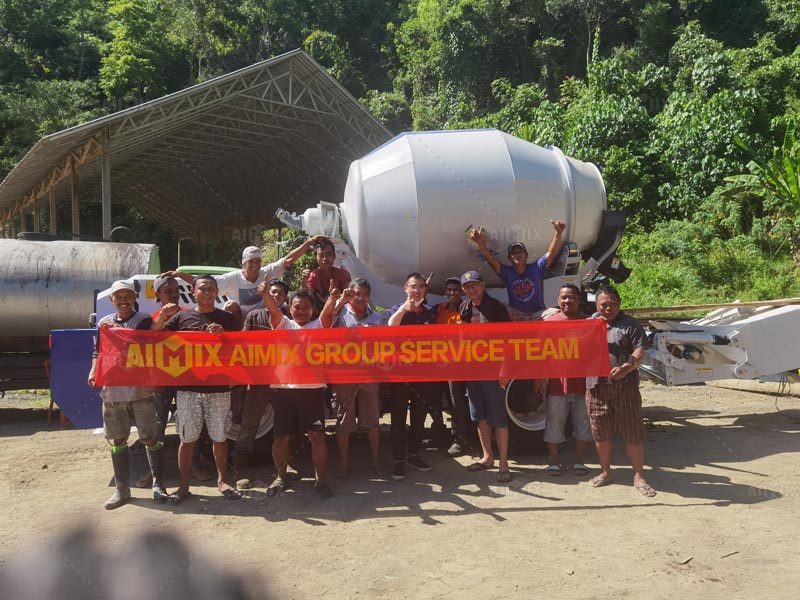Self-loading concrete mixers are indispensable for modern construction projects, especially in road and bridge construction. These machines combine the roles of a concrete mixer and a batching plant, offering efficiency and flexibility. Alongside other equipment like the trailer concrete pump, they help enterprises streamline operations and reduce costs.
What Are Self-Loading Concrete Mixers?
Features and Functions
- Mixing and delivering concrete directly at construction sites.
- Measuring and loading raw materials automatically.
- Providing fresh, high-quality concrete on demand.
Benefits for Construction Projects
- Portability: Easy to transport across job sites.
- Efficiency: Reduces reliance on external concrete supply.
- Cost-Effectiveness: Cuts labor and transportation costs.
Role in Road and Bridge Construction
Continuous Concrete Supply
Road and bridge projects often require large volumes of concrete over extended periods. Self-loading mixers(hormigonera autocargable precio) ensure an uninterrupted supply, minimizing delays.
Adaptability to Challenging Terrains
Their robust design and mobility make them ideal for remote or uneven construction sites, common in infrastructure projects.
How Trailer Concrete Pumps Complement Self-Loading Mixers
Efficient Concrete Placement
While self-loading mixers handle production, trailer concrete pumps(bomba de concreto estacionaria) ensure precise placement of concrete, even in hard-to-reach areas.
Enhanced Productivity
Combining these machines enables simultaneous mixing and pouring, accelerating project timelines.
Types of Self-Loading Concrete Mixers
1. Robomix
Equipped with a drum mixer, this type is ideal for job sites requiring direct discharge into dumpers.
2. Robomescolatore
Features a pan mixer for precast yard use and hydraulically adjustable discharge height for versatility.
3. Hydromix Dry Batching Plants
Includes conveyor belt discharge systems, suitable for traditional truck mixers.
4. Bin-Fed Batching Plants
Fully automated and portable, these plants produce up to 40m³ of concrete per hour. They can be customized with features like aggregate feeders and water chillers.
Factors to Consider When Choosing a Self-Loading Mixer
Capacity and Output
Select a mixer with sufficient capacity to meet your project’s demands without unnecessary downtime.
Automation Level
From manual to fully automated options, choose a system that aligns with your operational needs and budget.
Integration with Other Equipment
Ensure compatibility with other machines, such as trailer concrete pumps, for seamless workflow.
Advantages of Using Self-Loading Concrete Mixers
Reduced Costs
- Minimizes the need for transit mixer trucks.
- Cuts fuel, labor, and equipment expenses.
Time-Saving
- On-site mixing eliminates delays associated with off-site batching.
- Faster setup and operation boost productivity.
Environmental Benefits
Modern self-loading mixers are designed to reduce dust and emissions, aligning with sustainable construction practices.
Applications in the Construction Industry
Road Construction
Provides consistent concrete supply for pavements and highways, enhancing efficiency in remote or large-scale projects.
Bridge Construction
Ensures high-strength concrete for structural integrity and supports precise placement with trailer concrete pumps.
Precast Concrete Production
Ideal for manufacturing drainage pipes, foundations, and other components.
Conclusion
Self-loading concrete mixers and trailer concrete pumps are essential for construction enterprises aiming to improve efficiency and reduce costs. Their adaptability and advanced features make them invaluable for road and bridge projects, where consistent and high-quality concrete is critical.
By understanding the various types, features, and benefits of self-loading mixers, businesses can make informed decisions that align with their specific needs. Investing in the right equipment not only streamlines operations but also ensures long-term success in the competitive construction industry.

Comments
No comments yet. Be the first to react!